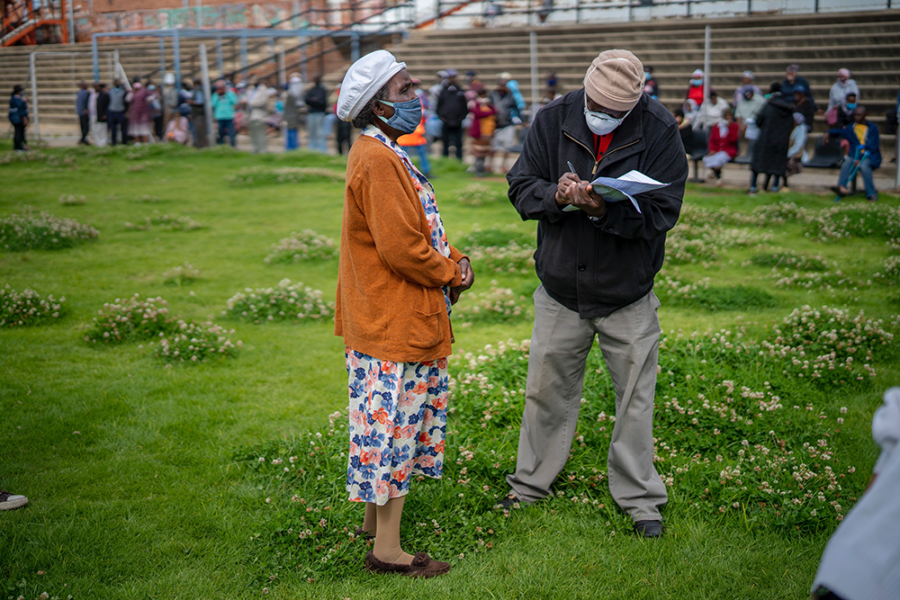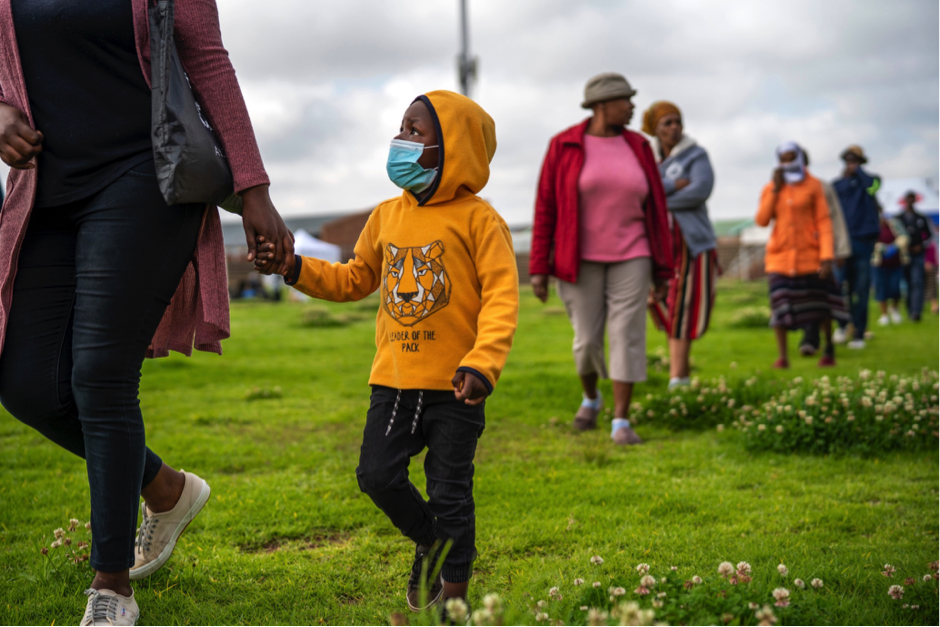SU researchers lead multi-university study to track economic impacts of COVID-19
(This article was also posted on the Stellenbosch University website)
This week researchers at Stellenbosch University launched the Coronavirus Rapid Mobile Survey (CRAM), a collaborative research project across five universities which will track the social and economic impacts of COVID-19 in South Africa. The study will survey a nationally representative sample of 10,000 South Africans every month for the next six months using telephone surveys with R20 airtime incentives per respondent per wave. The survey will focus on unemployment, household income, access to healthcare, child hunger and access to government grants.

The Principal Investigator of the study, Dr Nic Spaull from the Economics Department at Stellenbosch, explained the rationale of the study and the collaborative nature of the work: “We know that the coronavirus pandemic is the largest economic shock in our lifetime and it’s already having profound social impacts on our country. When we started seeing the data coming out of China, Italy and Spain we knew this was going to devastate our economy and trigger a global recession.” This prompted Spaull and NRF Research Chair Servaas van der Berg to see what they could do: “I mean, we were all asking ourselves what we can do to help. What is the role of researchers when faced with a global pandemic and economic catastrophe? And maybe it’s just because we’re economists and when all you’ve got is a hammer everything looks like a nail, but we kept coming back to the same thing, we need good data. Practically all surveys have stopped because enumerators can’t go into the field and collect data…There won’t even be CPI data this year” Spaull said.
In order for the study to be nationally representative the researchers realized they’d need to use telephone surveys and to link the new study to a pre-existing survey. That would allow them to use the mobile phone numbers of existing sample participants: “In order to be nationally-representative we wanted to link into one of the existing surveys targeting income and social dynamics. So I reached out to colleagues at UCT to find out about the possibility of extending the National Income Dynamics Study (NIDS) which is a nationally representative panel survey focusing on income. We wanted to include a mobile phone ‘update’ of NIDS to see how things are changing on the ground. Long story short, the Department of Planning Monitoring and Evaluation (DPME) in the Presidency was incredibly helpful with facilitating permissions to use the data, as well as all the researchers at the Southern African Labour Development Research Unit (SALDRU) who were the implementing agent for previous waves of NIDS and now also co-investigators on the project and the implementing agent of NIDS-CRAM. It’s really been incredible to see how collaborative everyone has been.”
Fortuitously for the project, the Dean of the faculty of Economic and Management Sciences, Professor Ingrid Woolard, was one of the Principal Investigators of the NIDS study at UCT before she moved to Stellenbosch University. Prof Woolard says “NIDS has been collecting data on the same 28,000 people for more than a decade so we have very rich data on the life courses of these individuals prior to the COVID crisis. The CRAM data is going to provide a statistically rigorous picture of the devastation created by the virus in order to inform timeous and targeted policy interventions. It’s been tremendously encouraging to see how quickly DPME agreed to making the sample available for this important work.”

Areas of work
Spaull is joined by eight co-investigators from Stellenbosch, UCT and Wits: Professor Dori Posel (Wits), Dr Gabrielle Wills (SU), Dr Nwabisa Makaluza (SU), Professor Reza Daniels (UCT), Professor Ronelle Burger (SU), Professor Rulof Burger (SU), Professor Servaas van der Berg (SU), Professor Vimal Ranchhod (UCT) and David Carel (SU) who each head up different areas related to Sampling, Social Welfare, Labour and Firms, Health and COVID-19 and the NIDS operations. We spoke to some of the SU researchers to get their input on the project:
Professor Ronelle Burger is situated in the Economics Department and is an expert on health economics: “I think the project is really exciting. It’s the first nationally-representative survey and it helps us get at important things that internet surveys can’t. From its launch going forward, the survey will be able to provide close to real-time updates on whether health system capacity constraints, fears about contracting the virus and disruption to transport networks are affecting access to healthcare. We’ll also be able to see the interactions between access to healthcare, receipt of grants and employment. That’s really important for policymakers, to adapt and adjust policy responses in this uncertain environment.”
Dr Nwabisa Makaluza is a researcher in the Research on Socioeconomic Policy Group (RESEP) in the Economics Department at Stellenbosch University: “Given the extreme inequalities we have in South Africa, it’s critical that we are also capturing what is happening at the lower end of the income distribution – those that don’t have jobs. Internet surveys under-report the poor and therefore miss out on what I think is the most important question at the moment: how is COVID-19 affecting the lives of the most marginalized people in South Africa? I think CRAM can help us answer that question.”
Professor Servaas van der Berg is the NRF Research Chair in Social Policy in the Economics Department at Stellenbosch University: “It was clear from the beginning that a telephone survey would create new challenges. One of those was finding a good sampling frame with telephone numbers. Fortunately we could use the NIDS sample. Another challenge is to keep the survey short, much shorter than for a fieldwork questionnaire. There are so many things we would like to know, but we had to focus on priorities. Our main concern is what information it could provide to assist policy making.”
The project quickly gained momentum and added collaborators from other departments and other universities. Now the group of CRAM researchers is made up of more than 30 researchers across five universities. The CRAM study will include six waves, one wave per month for the next six months. Wave 1 of CRAM began this week and will continue until the end of May 2020. The results of Wave 1 are expected mid June and will be available on the CRAM website: www.cramsurvey.org/
The aim of the researchers is to inform policy-makers and help direct relief efforts to where they are most needed, and to determine if those relief efforts are working as intended; “Our number one aim in all of this is to help policy-makers make the best decisions in these difficult times” said Spaull. Encouragingly, all data emerging from the project will be made freely available to download on the DataFirst platform immediately as it becomes available.
The project has received formal endorsement by the National Planning Commission, the National Treasury and the Department of Planning Monitoring and Evaluation in the Presidency and is funded by three donors: the Allan and Gill Gray Philanthropy, the FEM Education Foundation and the Michael and Susan Dell Foundation.






